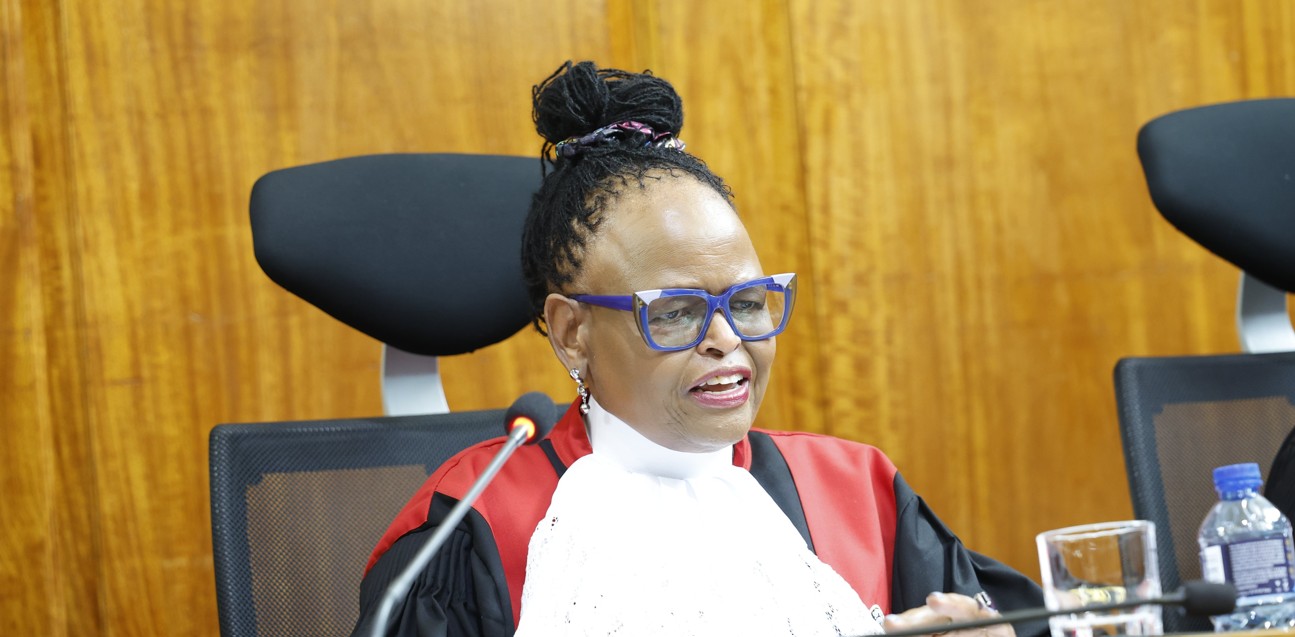Judiciary defends bail procedures after death of Saba Saba protester Julia Njoki

Ndemo said bail and bond decisions are not made arbitrarily, but are instead guided by judicial policy and the discretion of magistrates and judges, who assess each case based on its specific facts and context.
Judiciary Spokesperson Paul Ndemo has clarified the procedures governing bail and bond decisions, following public uproar over the death of 24-year-old Julia Wangui Njoki, who allegedly endured torture while in police custody.
Njoki was arrested during the Saba Saba protests in Nanyuki on July 7, 2025, and charged with malicious property damage. She remained in custody after failing to raise the Sh50,000 bond set by the court and later died in unclear circumstances, sparking widespread concern over the fairness of bail terms for protest-related offences.
More To Read
- Explainer: What is anticipatory bail and when should it be granted?
- Ruto faults Judiciary over anticipatory bail, says it shields corrupt individuals
- Legal experts divided over Ruto’s move to compensate protest victims since 2017
- Julia Wangui's death: Family rejects post-mortem findings, accuses state of cover-up
- Explainer: What counts as illegal possession of ammunition, the penalties and key facts
- Ruto warns opposition against inciting violence, urges focus on development agenda
In an interview with NTV, Ndemo responded to mounting criticism that courts are setting unaffordable bail conditions, particularly for first-time, non-violent offenders.
He explained that bail and bond decisions are not made arbitrarily, but are instead guided by judicial policy and the discretion of magistrates and judges, who assess each case based on its specific facts and context.
“The court will look at the seriousness of the offence and the varying circumstances of the case,” Ndemo said. “Judicial officers look at factors such as the seriousness of the offence, the charges presented, and the overall context. The judicial officer will look at what is reasonable."
Personal bond
Ndemo explained that suspects may be released on personal bond, which requires no cash payment, if the court determines they are not a flight risk. However, factors such as lack of a fixed residence, foreign nationality, or potential to obstruct justice could result in the denial of bail.
"The court will consider if you're a foreigner, have no fixed aboard, if the court thinks you may interfere with the investigations, or you may be a threat to witnesses or the victims, the court will deny you bond."
 24-year-old Julia Wangui Njoki, who allegedly endured torture while in police custody. (Photo: File)
24-year-old Julia Wangui Njoki, who allegedly endured torture while in police custody. (Photo: File)
He emphasised that prosecutors must present compelling evidence to justify bond terms and that all suspects have a right to be accompanied by a family member or close contact who can assist with processing bail if granted.
Ndemo emphasised that Kenya’s Judiciary does not initiate cases on its own and that its role is to adjudicate based on arguments and evidence brought by the parties involved.
“The judiciary never calls to itself cases. It waits for disputes to be brought before it,” he said. “Whether it is terrorism cases, or protest-related cases — somebody else brings those cases.”
Inconclusive results
The cause of death of 24-year-old Njoki, who collapsed while in custody after the Saba Saba protests in Nanyuki, remains unknown after an autopsy by three pathologists returned inconclusive results.
As reported by the Daily Nation, although bleeding was found in her brain, it was not severe enough to be the direct cause of death, prompting medics to request additional tests and further analysis.
“We don’t see direct injury to the head; therefore, we suspect the bleeding could have been caused by something other than trauma,” said Dr Peter Ndegwa of the Independent Medico-Legal Unit (IMLU), who led the autopsy team.
The pathologists also noted abnormalities in Njoki’s liver, pancreas, and lungs, which require further examination.
Toxicology tests will be carried out, and the team awaits a report from doctors who treated her after she collapsed at Nanyuki Women’s Prison.
Family spokesperson Susan Rienye said they were satisfied with the preliminary results and will wait for the final report, expected on July 28.
Top Stories Today












































